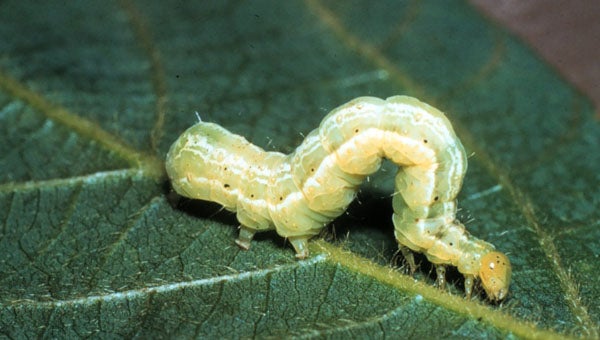Pest invasion destroys crops
Published 9:16 pm Monday, November 22, 2010

The soybean looper — just one of the many pests wreaking havoc this year — has plagued area crops and left many fields with nothing but stems and veins.
An invasion of crop pests made a bad situation worse this fall, eating much of what wasn’t destroyed by heat, drought and an end-of-summer deluge.
“With the lack of rain and the intense heat we had this summer, it’s one of the worst years we’ve had in more than 20 years, farmers are saying,” said Janet Spencer, a Virginia Cooperative Extension agent in Isle of Wight County. “All we can do at this point is hope for a better year next year.”
All but perhaps a few cotton fields have been harvested, and farmers are getting yields as low as 200 pounds of cotton an acre, Spencer said. A normal harvest would be 500 to 600 pounds an acre.
Farmers are also reporting a 50 to 80 percent loss of the peanut crop.
“A reason many of the soybeans and peanuts did so poorly is because of the heat,” Spencer said. “Peanuts produce a peg off the flower that goes into the soil, but because the soil was so hot the pegs were cooking.”
Soybean yields are also down at least 50 percent, Spencer said. Farmers usually harvest between 40 and 60 bushels an acre, but they are only bringing in 20 bushels per acre.
While heat and lack of rain were major contributors to this year’s yield losses, matters were made worse by a mass invasion of pests that plagued the crops.
“We had one of the worst infestations of pests in 22 years,” said Dr. Ames Herbert, entomologist with the cooperative agency. “It started early, and this last episode of fall armyworms was the last of a long stream of unusual problems. We’ve never seen anything like this before.”
Herbert said problems began in the summer with corn earworms. In a sample size, it’s normal to have four or five specimens, but there were typically 25 to 30, and up to 60, specimens in a sample this year.
As soon as the corn earworms began to subside, the soybean looper moved into the fields, Herbert said.
Soybean loopers were found up to 50 specimens per sample.
“If you had them in your field and didn’t treat it immediately, they would completely skeletonize the field,” Herbert said. “Veins and stems were all that were left of many fields.”
Lately, farmers have been fighting the armyworms that came in to mow down the winter wheat crop that was just planted.
“We see them all year, but this late season invasion was large and late,” Herbert said. “They were completely destroying the cover crop. I had one farmer from Smithfield call and said they were marching across the pavement in the parking lot. In some cases, farmers were worried that their crops weren’t sprouting because they’d just mow off the tops.”
Fortunately, no significant damage was done to the winter wheat crops because the seeds will continue to sprout after the pests are eliminated, but there could be a delay, Herbert said.
He added the cause of the bizarre critter invasions is unknown, but hopes with better resources farmers will be able to be better prepared.
“We have no idea what drove this throughout the east,” Herbert said. “What we saw were biblical proportions. It was a very, very long season.”



